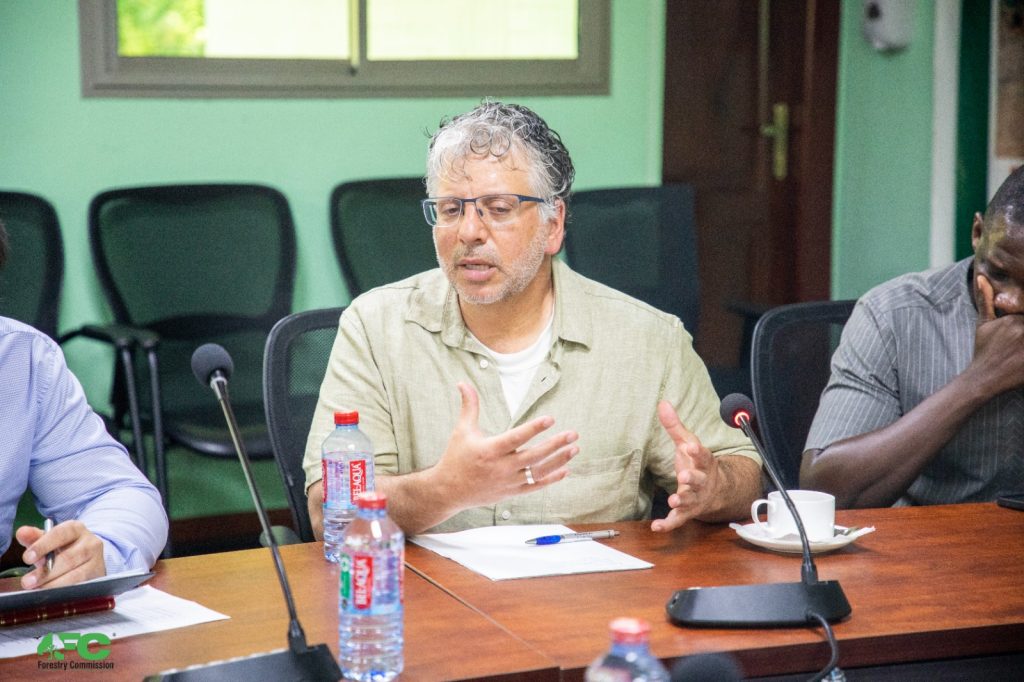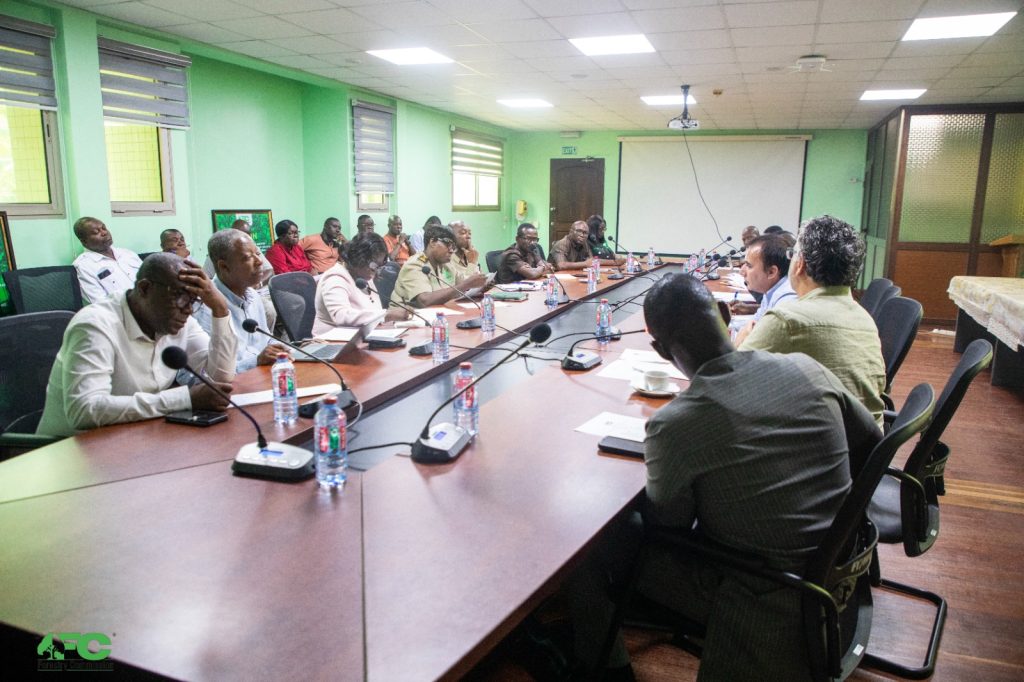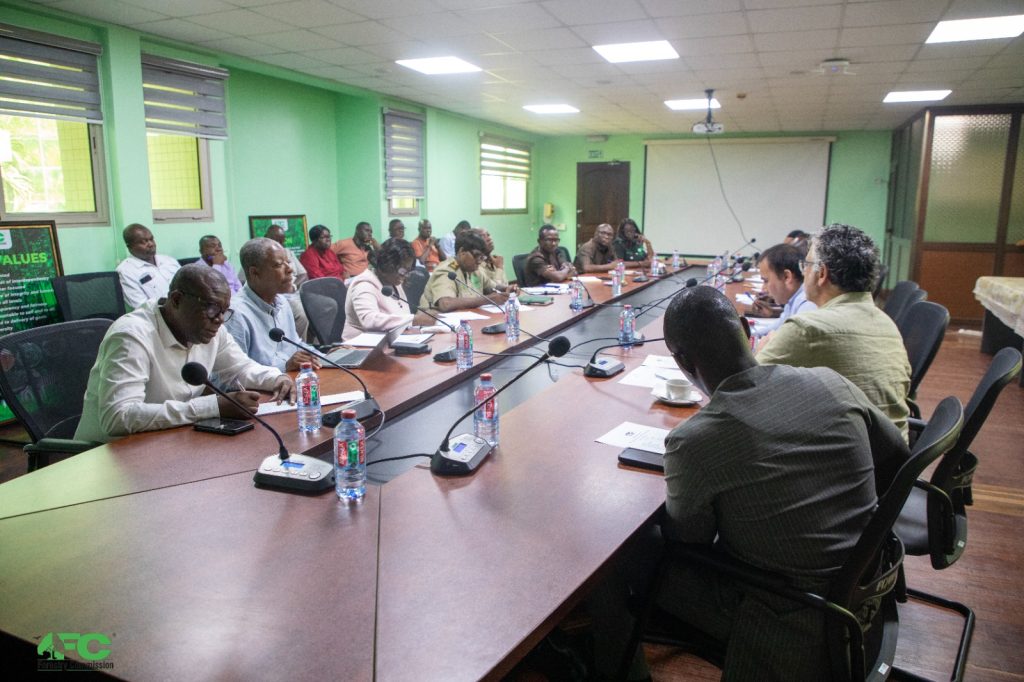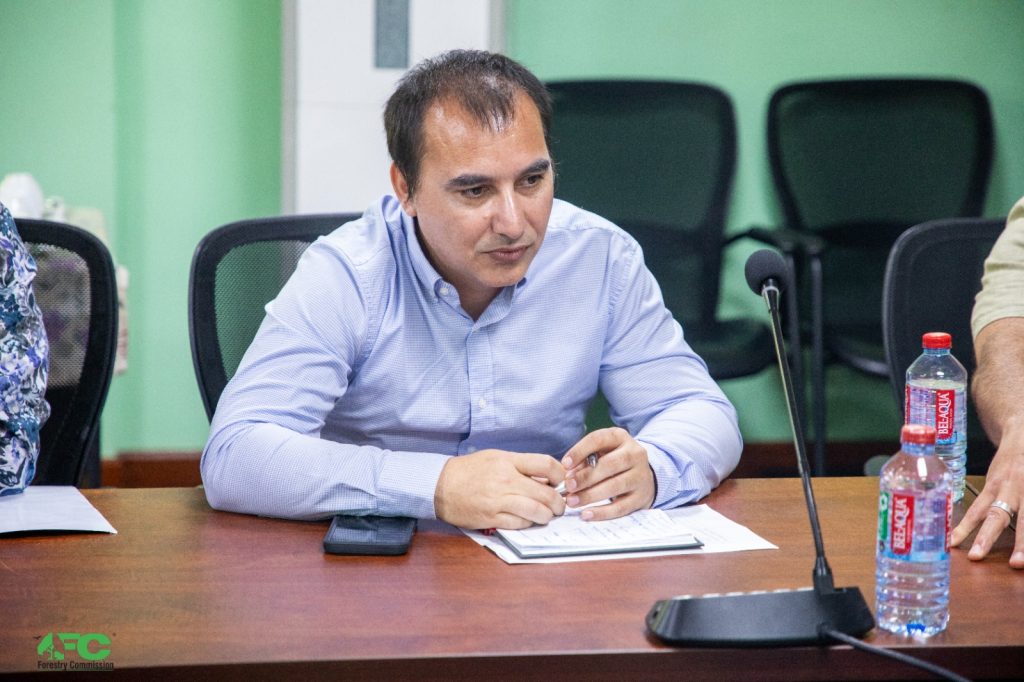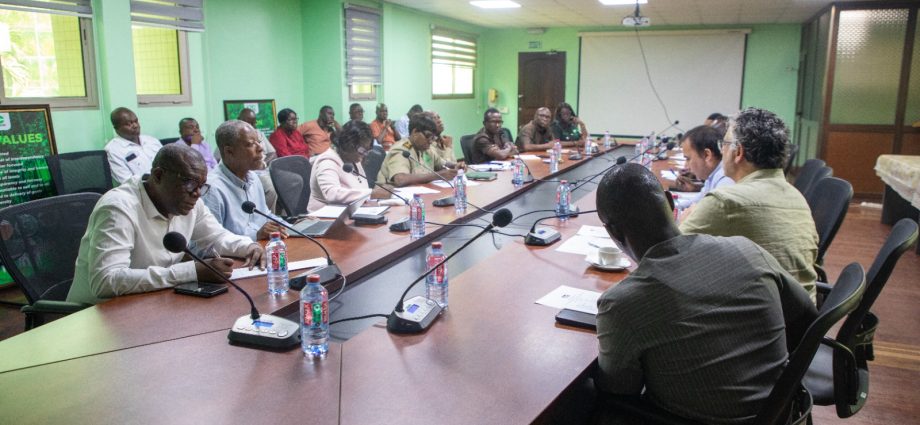USAID has joined forces with the Forestry Commission and devised a plan called Country Development Cooperation Strategy (CDCS) from 2025-2030.
This collaboration is a commitment aimed at understanding and mitigating threats posed to Ghana’s tropical forests and biodiversity.
This alliance was disclosed during a meeting at the Forestry Commission Head office, led by experts from the Cadmus Group and the Forestry Commission, with a clear mission – to preserve and enhance the natural landscapes that define Ghana’s Identity.
Dr. Joseph Yaw Appiah-Gyapong, Head of Donor Relations/Projects, highlighted the importance of cooperation in achieving shared goals.
As the dialogue unfolded, Mr. Ben Opoku of USAID, Ghana , sought insights into the key activities of the Forestry Commission. Mr. Hugh Brown, with his profound understanding of the mandate, eloquently outlined the Commission’s role and the gains associated with it.
The experts from the Cadmus Group articulated their concerns about the threats to biodiversity and climate change, emphasising the need for collaborative actions. Issues such as mangrove forest preservation and natural regeneration took center stage, sparking discussions on innovative solutions and revised strategies for conservation.
Mr. Joshua Adotey of USAID/Ghana delved into the Commission’s efforts to combat illegal logging, prompting an insightful lecture from the Executive Director.
Mr. Hugh Brown emphasised that, despite efforts to enforce the law, challenges persisted, suggesting the importance of deeper collaboration with the government.
Professor Mercy Derkyi from Cadmus Group ‘s inquiry about shea trees underscored the need for constant updates and knowledge sharing, a sentiment echoed by Deputy Chief Executive Mr. Nyadia Sulemana Nelson.
The conversation then shifted to opportunities for collaboration and capacity building, with Mr. Cudjoe Awudi, Director, CPME, advocating for intrusion detection monitoring systems, a submission supported by Mrs. Lydia Opoku who emphasised the urgency of forest inventories.
As both sides exchanged ideas and aspirations, it became evident that the path to a sustainable future would require collective effort and innovative solutions. With a roster of distinguished dignitaries from the Forestry Commission lending their expertise, the stage was set for meaningful progress.
In unity and purpose, USAID and the Forestry Commission forged a path towards a greener and brighter future for Ghana. The collaboration promised not only a sustainable legacy of prosperity but also a renewed commitment to environmental stewardship for generations to come.
